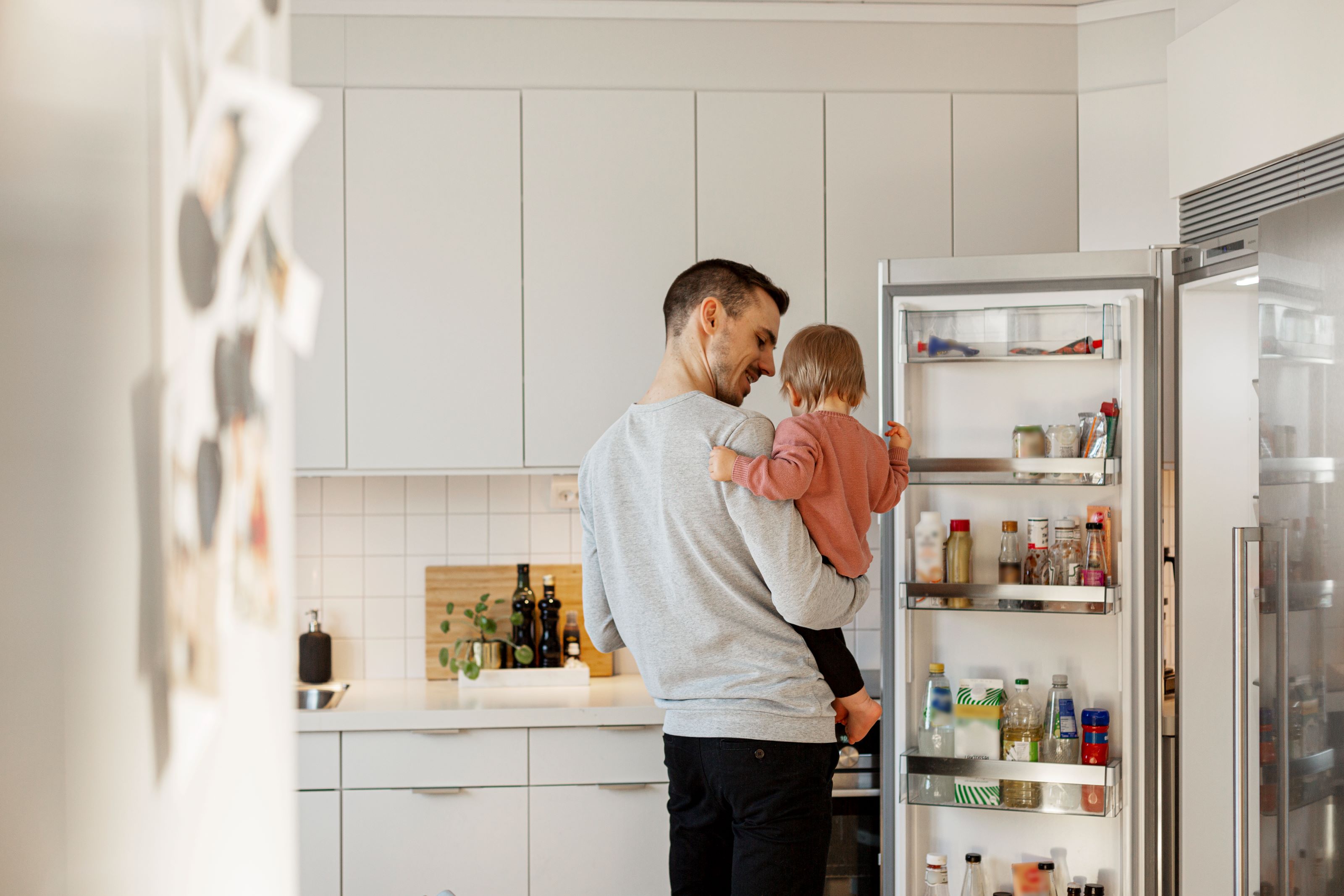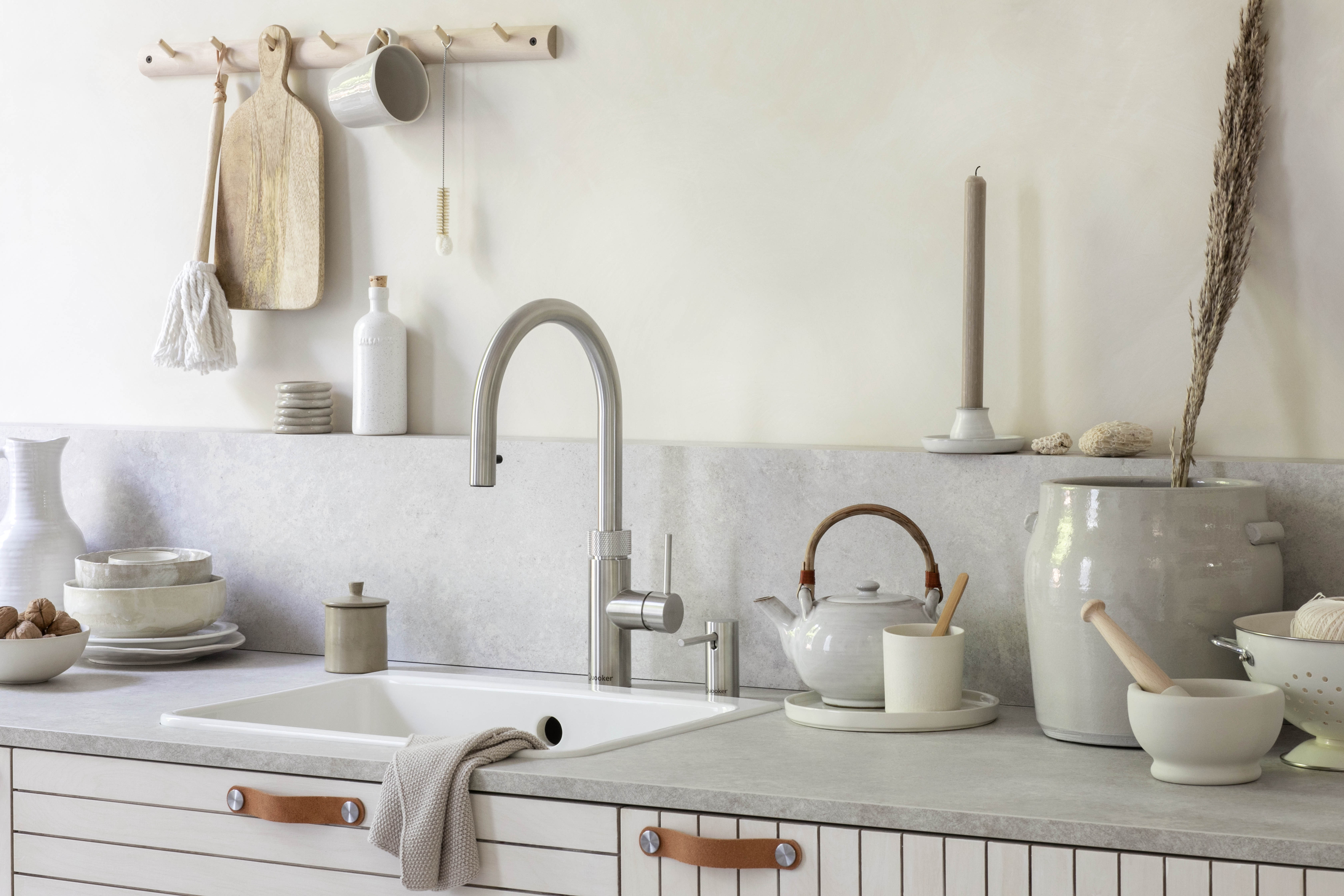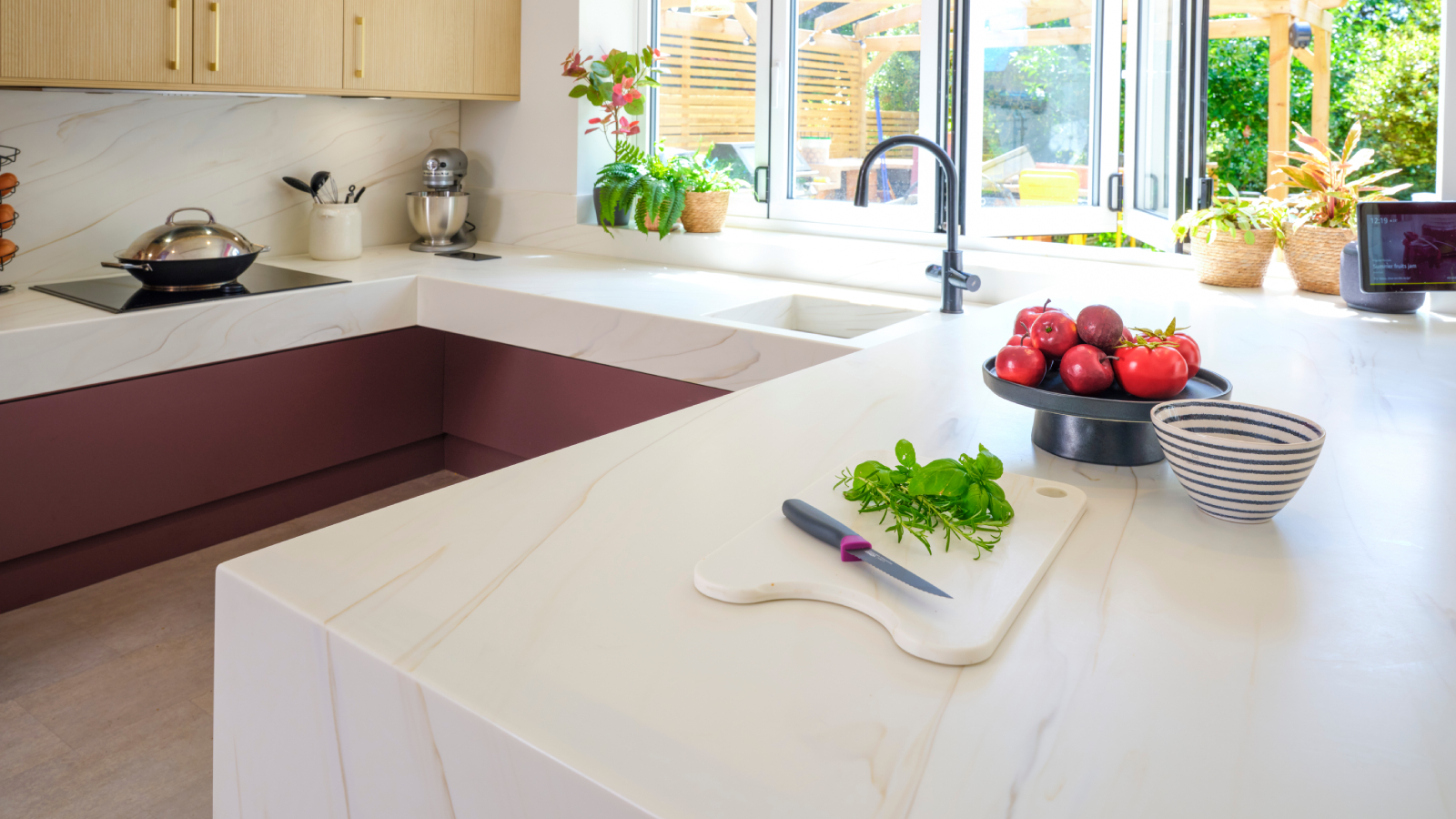
Bring your dream home to life with expert advice, how to guides and design inspiration. Sign up for our newsletter and get two free tickets to a Homebuilding & Renovating Show near you.
You are now subscribed
Your newsletter sign-up was successful
If you're wondering 'What uses the most electricity in the home?' you're not alone. With fears over high energy prices at an all time high, householders across the UK are searching for ways to cut their energy consumption.
Understanding the high energy items in our households is a good place to start, with fridges, washing machines and other large ticket items all coming under the energy saving tips microscope.
Electricity prices will average 34p per kilowatt-hour (kWh) this winter compared to around 17p per kWh this time last year, so it's important to start pinpointing exactly where this money is going.
We take a look at what uses the most electricity in the home.
What uses the most electricity in the home?
1. Dishwashers and washing machines
The appliances that consume the most electricity overall are so-called wet appliances like dishwashers and washing machines, according to Jennifer Warren, of home energy advice website EnergyGuide.org.uk.
The power needed to heat the water that they use pushes up consumption, making them responsible for around 16% of energy consumption in the average home.
Bring your dream home to life with expert advice, how to guides and design inspiration. Sign up for our newsletter and get two free tickets to a Homebuilding & Renovating Show near you.
She said: “In terms of the exact appliances that consume the most electricity, tumble dryers lead the way and the average 2500 watt model costs around 85p an hour to run.”
2. Refrigerators and freezers
After wet appliances, cold appliances are the next biggest energy drain on household energy with them being responsible for around 12% of total energy bill costs, Jennifer adds.
Cold appliances include refrigerators and freezers and since they need to maintain a constant temperature, they are always drawing energy.
3. TVs and games consoles
Consumer electronics like TVs and game consoles comprise about 6% of an average home’s total energy bill.
4. Lighting
Lighting is estimated to take up around 5% of your home's energy bill. As the winter nights draw in, we are likely to be lighting up our homes more frequently. Especially if you have a large family that uses multiple rooms.
Of course, it does depend on the type of lightbulbs you have in your home. A non-energy efficient 100W bulb might consume 0.1kWh, costing 3.4p an hour to power. Meanwhile, a more energy efficient 4W LED bulb could cost as little as 0.136p an hour as it uses only 0.004kWh.
Take a look at our guide on the best LED bulbs for more information.
5. Electric showers
Many electric showers use a surprising amount of electricity, something homeowners might not necessarily realise.
“What may surprise some is the cost of an electric shower — the average 9000 watt unit costs a staggering 51p for just 10 minutes. That’s £3.06 an hour,” says Jennifer.
6. Irons and electric razors
Smaller appliances like irons and electric razors are typically a higher wattage than household appliances, she adds, but are used for a much shorter period of time so aren’t typically responsible for a huge amount of energy consumption.

How can I reduce my energy bills?
1. Use energy-efficient appliances and 'eco' modes
The best way households can save money is by opting for energy-efficient appliances and using the less energy-intensive ‘eco’ mode if the appliance has one. Check out our piece on 'Do energy efficient appliances save you money?' for more on this.
2. Switch to LED bulbs
A quick and easy way to save money is by using LED bulbs as they consume a fraction of the electricity and therefore cost much less.
As briefly looked at earlier, a non-energy saving 100W light bulb uses around 0.1kW an hour, which would cost 3.4p an hour to use. That means that 10 100W light bulbs being used at once would require 1kW, which would cost 34p an hour. Switching to LED bulbs costing a fraction of this at 0.136p an hour each would cost 1.36p for 10 bulbs an hour, which is a 32.64p saving per hour. That's a 96% saving.
3. Consider smart heating devices
The initial cost outlay may be off-putting, but smart heating devices can bring down energy bills.
Smart thermostats and smart TRVs (thermostatic radiator valves) can enable homeowners to connect their central heating system to the internet. The advantage is it allows you to change the temperature or adjust temperature room by room according to use.
These systems will help you manage your energy usage much better and save cash on your energy bill.
4. Add smart plugs to your home
Another inexpensive option is smart plugs which enable you to turn off appliances that are not being used from your smartphone or another device, or set schedules. The best smart plugs can even monitor how much energy a device is using.
5. Ditch the oven and use microwaves instead
Your cooking habits may also be costing you cash unnecessarily. Microwaves are more efficient than ovens at cooking, as they only heat the food and not the air inside. Air fryers and slow cookers are similarly gaining in popularity.
6. Stop overfilling the kettle
Avoiding overfilling the kettle could save you a few pennies as the kettle takes longer and uses more energy to boil with more water inside it.
7. Wash your clothing and dishes at a lower temperature
Choosing to wash clothes at a lower temperature can help reduce your energy consumption, and try to avoid washing half loads to save water, advises the Energy Saving Trust. The same goes for your dishwasher, so use its eco setting and try to wait until it’s full before turning it on. More in our best integrated dishwashers piece.
8. Switch off games consoles and TVs when not in use
Laptops, gaming PCs, smart voice recognition devices, and other tech all drain cash when left on standby.
9. Go for a smaller TV screen
If you’re looking to get a new TV, seek out the most energy-efficient model you can afford, or choose a smaller screen size as it will use less energy.

Sam is based in Coventry and has been a news reporter for nearly 20 years. His work has featured in the Mirror, The Sun, MailOnline, the Independent, and news outlets throughout the world. As a copywriter, he has written for clients as diverse as Saint-Gobain, Michelin, Halfords Autocentre, Great British Heating, and Irwin Industrial Tools. During the pandemic, he converted a van into a mini-camper and is currently planning to convert his shed into an office and Star Wars shrine.

